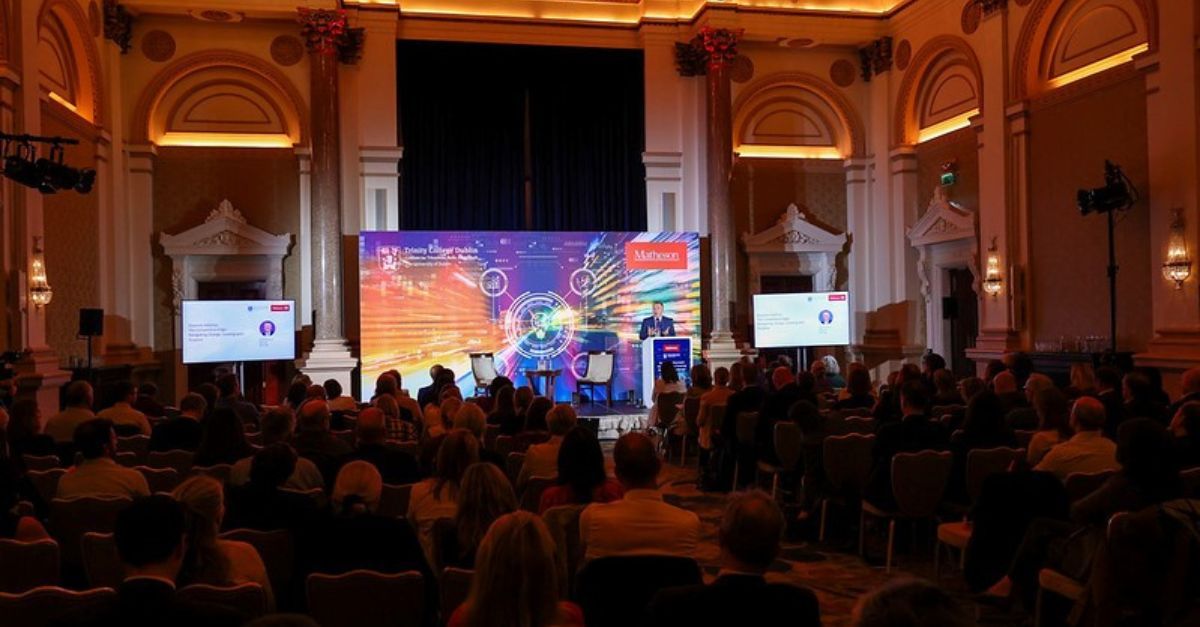I attended the Simplify to Succeed: Navigating the Evolving Regulatory Landscape event presented by Matheson and Trinity College Dublin School of Law on the 11th September, 2025. The keynote was by the EU European Commissioner for Democracy, Justice, the Rule of Law and Consumer Protection, Michael McGrath, followed by three themed discussions on the regulatory context for Financial Services, AI and ESG.
Excellent event, well attended, good content, many new buzzwords and insights!
But beyond content and networking, I found myself tuning into the mood or the “emotional field” of the event and how it ebbed and flowed from the Commissioner’s keynote and across each of the three panels. Here is what I sensed:
The Keynote
The Commissioner exuded confidence. The future was about competitiveness. There was an element of humour about the number of times the word “competitiveness” was being mentioned. Regulatory coherence across the EU-27 would unleash us as an economic force that would match our competing geo-political blocs, namely the US and China. It wasn’t about deregulation, but better regulation! The sense of excitement and possibility was palpable and infectious.
Financial Services Panel
The “field” shifted mood somewhat. The panel seemed to have a sense of frustrated anticipation about the growth potential of new financial assets arising through, for example, tokenisation. This could serve as a gateway to the financialisation of biodiversity and natural capital. [Whether that would benefit nature, or merely price it, remains a very open question.] Overall, the “field” resonated with impatience at the slow regulatory pace to provide the certainty and controls needed to facilitate access to these new “hot” markets.
Artificial Intelligence Panel
The field shifted again. Now things seemed “matter of fact” and pragmatic. The panel offered practical and conventional advice on AI governance. For this panel, what I couldn’t sense seemed noteworthy. For example, there wasn’t excitement about AI, there wasn’t concern or hope about its implications for jobs, society, politics, or the environment. It felt efficient, the mood detached, and it felt like we were being quietly obedient to inevitability.
ESG Panel
By this time, I would say 50% of the attendance had left, but those remaining seemed very engaged. What was the mood in the field?
Perhaps it was one of quietly expressed (or suppressed) disappointment that the ambition of the EU Green Deal had faded or capitulated (in the context of the first Omnibus simplification package). To varying degrees, there was confusion, frustration, exasperation and perhaps the lack of confidence that comes from not knowing how work was going to get done and how to explain that uncertainty to teams, clients and regulators. (This was in the context of the cascade of impacts beyond CSRD to the SFDR and EU Taxonomy.) Those of us in professional services never like this feeling and usually mask it. The session seemed to be concluding with something like a sense of wonderment as to how things had come to this…
…when at the last gasp, a strand of positivity was found. AI could address many of ESG’s challenges with real-time data, monitoring carbon emissions, reporting and offering transparency to investors…
Personal Resonance
As I left, I tried to figure out how I was feeling. I had a sense of appreciation for having the opportunity to attend a thought-provoking event. But I also sensed an undercurrent of disappointment. I had dared to dream that the EU Green Deal and the “Brussels Effect” could change us. But the imperative for competitiveness and political muscularity now dominates the field. Perhaps my disappointment was accompanied by a
sense of being “let down” or perhaps even having let myself down for being foolish or naïve to believe that the Green Deal could withstand the forces in the field.
Of course, feelings change all the time, coming and going like waves…but I think the field remembers.

Share this on...